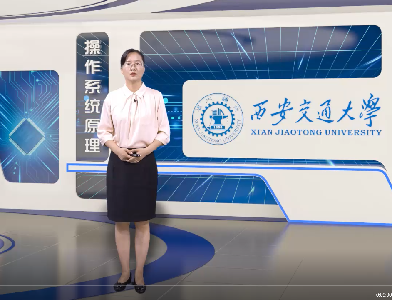
当前课程知识点:国际商务 > 九、国际商务战略 > 9.1国际企业的战略 > 国际企业的战略
同学们好
Hello Everyone
我是云南财经大学国际工商学院的潘雪冬老师
I am Pan Xuedong from International Business School of Yunnan University of Finance & Economics
这节课我们学习国际商务课程的国际企业战略
We are going to study the strategy of international firms today
我们从宜家的全球化战略导入今天的课程学习
Let’s introduce today’s lesson by the global strategy of IKEA
宜家是来自于瑞典的全世界最大的家具零售企业
IKEA is the largest furniture retailer all over the world from Sweden
截止目前
So far
宜家在56个国家和地区开设了422家门店
There is 422 warehouse-type stores all over 56 countries
宜家第一次进入中国市场的时间是1998年
It was 1998 when IKEA entered into Chinese market
在上海徐汇区开了第一家门店
and opened the first store in XuHui District of Shanghai city
预计到2020年底,宜家在中国的门店将达到34家
It is estimated that there will be 34 stores of IKEA in China by the end of 2020
宜家采用了全球化战略, 带来了两个优势
IKEA takes global strategy to bring two advantages
一是全球采购原材料,降低了生产成本
one is purchasing raw materials globally to reduce cost
二是实施全球战略的标准化
Another one is implementing global strategy standardization
运用到所有的宜家门店,带来产品和价格的吸引力
in all the IKEA stores to increase the attractiveness of the products and price
1998年当宜家进入中国市场的时候
When IKEA entered China in 1998
吸取在其他国家的经验教训
,it made adaptations to the local market
根据中国市场做出一定调整,商品的陈设借鉴了中国人住所的特点
The store layout reflects the layout of live, and many Chinese apartments, where most people
改变了在中国门店的选址
IKEA has also had to shift its locations in China
靠近公交车站
stores are located near public transportation
还提供配送
and IKEA offers a delivery service so that Chinese customers can get their purchases home
宜家案例给我们带来两点思考
IKEA case makes us to consider two points
一是恰当的战略定位和选择是国际企业成功的关键
one is that the appropriate strategies positioning and choice is the key for the success of international firms
二是国际企业的战略并不是一成不变
another is that the strategies of international firms
而是在满足市场的需要过程中不断调整
continue to adjust gradually in the process of meeting markets needs rather than changeless
接下来
Next
我们一起来回顾什么是企业的战略
let’s review what the strategy of an enterprise is
一个企业的战略可定义为
A firm’s strategy can be defined as
管理人员为达成企业的目标所采取的行动
the actions that mangers take to attain the goals of the firm
对多数企业而言
For most firms
首要的目标是为公司创造最高的企业价值
the preeminent goal is to maximize the value of the firm for its owners and its shareholders
企业价值最大化表现为
Maximizing the value of the firm is expressed as
一追求企业长期盈利能力最大化
1.pursuing the rate of profit growth over time
二利润增长能够用数据衡量
2. profitability can be measured in a number of ways
企业管理层可以通过各种战略来提高公司的盈利能力
Managers can increase the profitability of the firm by pursuing strategies
比如:降低成本,增加产品价值
that lower costs or by pursuing strategies that add value to the firm’s products
企业管理层也可以通过各种战略来提高公司的利润增长率
Managers can increase the rate at which the firm’s profits grow over time
比如:扩大现有市场的销量
by pursing strategies to sell more products in existing markets
或者开发新市场
or by pursing strategies to enter new markets
这个时候
At moment
大家会想到我们刚刚讲过的导入案例
we are going to think about
宜家的全球战略
the IKEA case discussed before
企业可以通过提高盈利能力
The way to increase the profitability of a firm is
来创造更多的价值
to create more value
企业创造的价值可以通过
The amount of value a firm creates is generally measured by
消费者对产品在感知价值
the difference between its costs of production
与产品的生产成本之差进行衡量
and the quality that consumers perceive in its products
通常情况下
In general
用户对企业产品的价值评估得越高
the more value customers place on a firm’s products
产品的价格就能定得越高
the higher the price the firm can charge for those products
需要注意的是
It needs to pay attention that
企业对其产品或服务的定价
the price a firm charges for a good or service is
通常低于用户对该产品或服务评估的价值
typically less than the value placed on that good or service by the customer
如果企业为消费者创造更多的价值
If a firm has high profits when it creates more value for its customers
或以更低的成本生产出产品,就能产生更多的利润
and does so at lower cost
我们把降低生产成本的战略称为
We refer to a strategy that focuses primarily on lowering production costs as a
低成本战略
low-cost strategy
把增加产品吸引力的战略称为
We refer to a strategy that focuses primarily on increasing the attractiveness of a product as a
差异化战略
differentiation strategy
低成本和差异化
Low cost and differentiation are two basic strategies for
是创造价值以及在一个产业中获得竞争优势的两个基本战略
creating value an attaining a competitive advantage in an industry
卓越的盈利能力来自能创造卓越价值的企业
Superior profitability goes to those firms that can create superior value
而创造卓越价值的方法或是降低业务的成本
and the way to create superior values to drive down the cost structure of the business
或是以某种方法使产品差异化
or differentiate the product in some way
让消费者感到它有更高价值并愿意为其支付高价
so that consumers value it more and are prepared to pay a premium price
企业明确选择的战略很重要
It is important for a firm
即明确重点是价值创造(差异化)
to be explicit about its choice of strategic emphasis with regard to value creation(differentiation)
还是低成本
and low cost
以及如何构造内部营运机制来支持其战略重点
and to configure its internal operations to support that strategic emphasis
最大盈利能力是战略管理中的核心原则
A central tenet of the basic strategy paradigm is that to maximize its profitability
这一节的内容就是这些,感谢大家的参与
That’s all for this unit and thank you for your participation
-1.1 全球化的概念和内容
-1.2 全球机构和全球化的推动力
-1.3 全球经济的变化和逆全球化的动因与现象
-第一章课后练习
-2.1 政治体制
--政治体制
-2.2 经济体制
--经济体制
-2.3 法律体系
--法律体系
-2.4 经济发展的决定因素
-2.5 经济转型的本质和经济变革的意义
-第二章课后练习
-3.1 跨文化差异的本质和影响因素
-3.2 跨文化差异的影响因素、文化维度和文化演进
-3.3 商务伦理问题的本质、起因和哲学路径
-第三章课后练习
-4.1区域经济一体化的概念及层次
-4.2区域经济一体化的争论
-第四章课后练习
-5.1国际贸易理论
--国际贸易理论
-第五章课后练习
-6.1国家干预国际贸易的原因
-6.2国家干预国际贸易的措施
-第六章课后练习
-7.1投资的现状
--投资的现状
-7.2投资的理论
--投资的理论
-7.3投资利弊与政府干预
-第七章课后练习
-8.1外汇市场
--外汇市场
--外汇市场案例学习
--外汇市场案例分析
-8.2货币体系
--货币体系
-8.3全球资本市场
--全球资本市场
-第八章课后练习
-9.1国际企业的战略
--国际企业的战略
-9.2战略目标
--战略目标
-9.3环境压力
--环境压力
-9.4战略选择
--战略选择
-第九章课后练习
-10.1组织构架与组织结构
-10.2控制、奖励、流程与文化
-10.3战略与组织构架
--战略与组织构架
-10.4组织变革
--组织变革
-第十章课后练习
-11.1市场进入战略
--市场进入战略
-11.2战略联盟
--战略联盟
-第十一章课后练习
-12.1进出口贸易与对等贸易
-第十二章课后练习
-13.1产品策略和分销策略
-13.2沟通策略、定价策略和新产品研发
-第十三章课后练习
-14.1全球生产与供应链管理
-第十四章课后练习
-15.1国际人力资源管理的作用
-15.2人员配备、培训与管理
-15.3业绩评估与薪酬
--业绩评估与薪酬
-15.4国际劳工关系
--国际劳工关系
-第十五章课后练习
-16.1国际会计
--国际会计
-16.2国际企业财务管理
--国际企业财务管理
-第十六章课后练习
